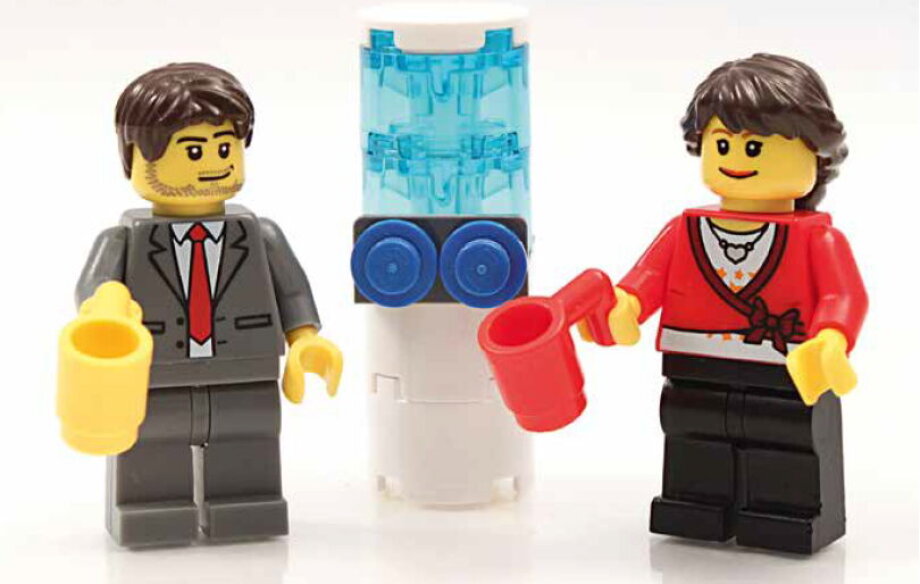Can AI upset the decade-long stalemate on the SEO market?
On Turing test with chatbots and bog writing BY BEATA SOCHA

On Turing test with chatbots and bog writing BY BEATA SOCHA

“Did you hear about ‘forever plastics’?”
“Yeah, that’s pretty terrible. They keep finding them everywhere
they look: animal blood, newborn babies, even Antarctica!”
“Really?”
“Yeah, I read it somewhere.”
“Where?”
“Oh, I don’t know. Some article online.”
If your coffee break chat ever looked like this… well, you are just like anybody else. Congrats. We love exchanging half-remembered factoids with friends and coworkers. Many of us could well be considered chatterboxes.
Recently we have been introduced to what seems to be a game changer: a large language model that eats the Turing test for breakfast. It also chews and spits out translators, proofreaders and even entry-level researchers. Brainstorming when you’re not feeling 100 percent? Why bother? Just ask ChatGPT. It’ll tell you what you may have forgotten. Or at least what other people are thinking about it.
Any new tech has its evangelists, as its naysayers. The detractors seem to be have a two-prong criticism of large language models (like ChatGPT) to offer: we are all doomed, creative jobs are no more, we should pack up and leave. Or sue everybody for plagiarism.
OR
These large language models are nothing more than a blurry image. They can carry a passingly-engaging conversation, but they don’t have anything original or insightful to say, nor can they factcheck well enough.
I see their points, both these groups have made valid arguments. But what irks me is the latter group’s air of superiority when they warn us not to “anthropomorphize artificial intelligence.” That no matter how closely these chatbots resemble human speech patterns, they are uninsightful, repetitive and ultimately not worth engaging with.
The thing is, I would wager that most of our daily conversations are no more insightful, engaging or original than a five-minute sitdown with ChatGPT. Nor as thoroughly researched, as shown in the example above. The same goes for blog posts and the multitude of stories that make our eyes glaze over on our personalized news feeds. Some bloggers have even “written” new blog posts with ChatGPT, as proof that they are not that far off in terms of readability and structure. In fact, they are almost on point, if you forgive a couple factual errors here and there.
So why do we expect a large language model, which was trained on a vast corpus of human interactions and writing samples, to be more intellectual? It is what it is precisely because it was built on our own exchanges. And when writing an essay or a blog post, ChatGPT is formulaic and boring because this is how blog posts, and internet content, has been written for years: seemingly for other humans, but in fact for tiny little web crawlers to improve search parameters.
When you read and write blog posts for a living, you soon realize how insanely “optimized” they are. It’s down to a science: keyword here, H2 headline there, pack it with synonyms, expand the topic, meet the wordcount, and the rest is just gravy. And never ever forget about competitor research. Which ultimately means that the blog posts you read are almost carbon copies of one another.
The bottom line is: You get out of it what you put in. We’ve flooded the internet with mediocre, yet search engineoptimized copy and this is what we are being fed back. There’s no way around this fact, it is a self-perpetuating cycle of input and output.
Unless ChatGPT and its brethren really turn out to be the game changer, but in a more surprising and nuanced way. Unless they upset the decade-long stalemate on the SEO market and provide an advantage, even a temporary one, to Bing or other engines, helping them win back a portion of the search market. Perhaps, it will allow us to change our search habits and thus - search results. And maybe, just maybe, the powers that be will tweak their algorithms to allow for a more varied content to make it through to the first SERP?
It is somewhat fitting that the last tech feature I wrote as Managing Editor of Warsaw Business Journal was about GPT-2, back in late 2019. And now my first tech column coming back as a contributor is about its next incarnation. Which brings me to my last point here: large language models are nothing new. Scientists have been working on them for years and years. They just figured out a few interesting business use cases that may shift the way we work and search online.